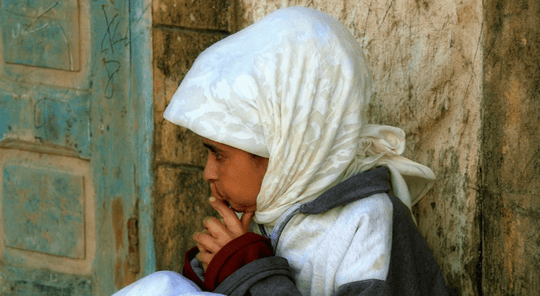Empowering Vulnerable Youth: The Role of Restorative Practices

Children, as the most vulnerable and impressionable members of our society, require the utmost care and the teaching of essential life skills. With over a third of its population being children, Morocco has a critical responsibility to ensure that all these young people receive the necessary guidance to thrive and reach their full potential as individuals. To meet these duties, we must address the needs of all children, including those often forgotten: “children in difficult situations.”
According to Article 513 of the Code of Criminal Procedure, a minor “is considered to be in a difficult situation when their physical, intellectual, mental, and moral security or their education is exposed to danger.” This blanket term is placed upon children who have faced any sort of challenge, including losing contact with their family, dropping out of school, and committing non-violent crimes. All of these children are subject to being placed in the same Child Protection Centers (CPCs) by their respective judges.
Growing minds being secluded and placed in a new environment while processing distressing events is a breeding ground for issues in personal development, mental health, and future reintegration into society. Physician Gabor Maté’s research highlights that “the greatest damage done by neglect… is not the immediate pain it inflicts but the long-term distortions it induces in the way a developing child will continue to interpret the world and her situation in it.” To truly provide the essential tools and nurturing these children require, strategies must be implemented to target their specific needs to ensure they can move on, reintegrate, and reach their full potential as young individuals.
What are Restorative Strategies and Practices?
The International Institute for Restorative Practices (IIRP) defines restorative practice as "a social science that studies how to build social capital and achieve social discipline through participatory learning and decision-making." Restorative practices are useful for rebuilding relationships, preventing future harm, and teaching long-term tools such as self-regulation, conflict-resolution skills, and empathy.
Restorative practices involve learning proper dialogue, using respectful language, listening actively, and acknowledging others' perspectives. These skills and healthy dialogue are practiced in simulated restorative circles, where children take on the roles of both the mediator and affected parties to understand the complexity of each role.
Types of Restorative Circles
Furthermore, children can apply restorative practices in real-life situations. When a conflict arises, they can engage in a restorative circle where the responsible and affected parties are given a safe space to discuss the events that occurred with the help of a mediator. This way, they may actively use what they have learned, including:
- Establish conditions for learning and transformation
- Cultivate empathy and compassion
- Support skillful communication
- Support healing and restoration during and after conflict
- Restore hope, trust, and a sense of belonging.
Additionally, support circles focus on internal conflicts, allowing children to express and process their emotions, practice self-regulation, and develop healthy coping mechanisms. Through breathing and dialogue exercises, individuals to voice their own troubles while learning when it is time to listen to the troubles of their peers, teaching them how to maintain empathy and understanding.
What are Its Proven Effects?
Studies in U.S. schools have consistently found that exposure to restorative practices improves school climates. A study by The Learning Policy Institute observed restorative practices in place in over 450 middle schools nationwide, finding that the students exhibited improved behavior, school safety, reduced achievement gaps among students, improved academic achievement, and significantly lower suspension and expulsion rates.
Furthermore, a study by the National Criminal Justice Reference Service found that exposure to restorative practices in juvenile detention centers leads to a reduction in future delinquent behavior. Having shown positive effects on various groups of youth, implementing restorative practices like these in Morocco’s CPCs could transform the rehabilitation process, fostering a supportive environment that promotes personal growth.
How do HAF’s Current Efforts Connect?
Certain Moroccan CPCs have provided programs designated for vocational training and life skills for children between 15 and 17 years old. Additionally, several initiatives have been launched in collaboration with the IOM in Tangier and Tetuan to reduce the marginalization of individuals aged 14 to 25. However, there is significant potential regarding psychosocial support for their youth, both in the centers and post-release.
HAF has already begun its exploration of restorative practices through its successful IMAGINE workshops. These empowerment circles run by HAF mediators aim to amplify women’s voices by teaching them to balance their emotions, control their fears, work through trauma from challenging events (such as the devastating earthquake in 2023), and practice empathy for others' stories.
HAF reports that IMAGINE has conducted 79 workshops in existing women’s cooperatives, helping over 3400 women and children gain additional skills and achieve significant milestones. Some women have started pursuing their education, while others have started selling their handmade goods independently, using the knowledge and skills from the workshops to overcome their hardships.
“The High Atlas Foundation workshops allowed me to take control of my life and make decisions I didn’t think I would ever find the confidence to make…it made the troubles I went through serve a purpose rather than letting them bring me down,” says Samira, the first woman in the Zrbiat Achbarou Cooperative to receive her driver’s license. These achievements break traditional barriers, set new community standards, and open new possibilities for future generations.
By applying principles from the IMAGINE workshops to current CPCs, vulnerable youth can receive the support they need to address their traumas, develop emotional resilience, and build healthy relationships. This approach not only aids in their personal development but also equips them with the necessary skills for smooth reintegration into society, thereby reducing the risk of recidivism and fostering a more hopeful future.
Katrina Sadoudi is an undergraduate student at the University of Virginia and an intern at the High Atlas Foundation in Morocco.